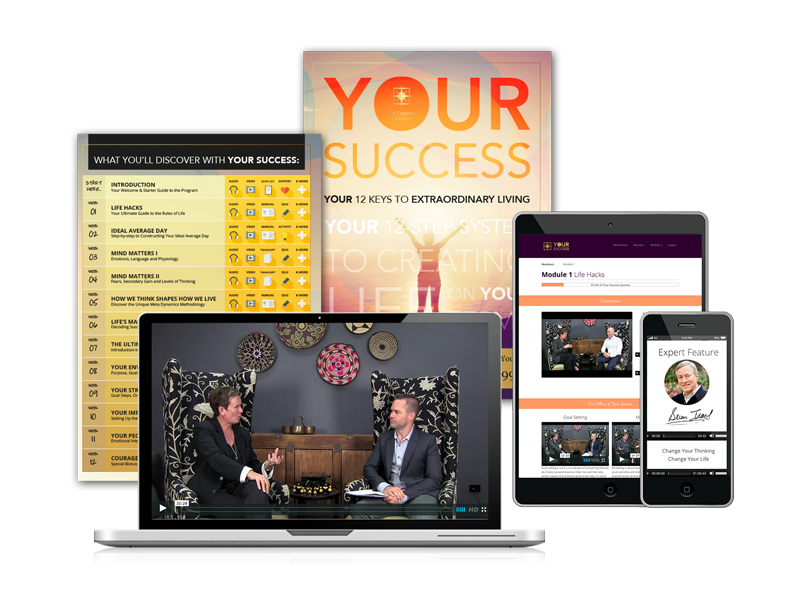
You’ve been hurt in the past.
And that sucks.
You cannot move past something your partner did or your mom said.
Maybe a friend’s piercing comment is stuck in your mind.
What’s important though is you decide what to do with all that past hurt.
Do you sit back, wallow in your misery, wondering about the ever-elusive “why me” question all this time?
Do you endlessly ruminate about the past, getting stuck into the downward spiral of negative thinking?
Or do you prefer to bounce back and make a conscious decision to take it as a learning experience and move on?
Often, we’re unintentionally living in the past. We taste our food at the restaurant and think “It’s not as good as what they had the last time”. We sip our coffee and think “I wish it had less sugar”. We’re constantly ruminating on the past (or the future).
According to Eckhart Tolle, we create and maintain problems in our lives because it gives us an identity.
Most people replay past mistakes and painful situations over and over in their minds. They cling to frustration. They obsess and feel victimised by these experiences.
In the end, no matter what the cause of your trauma, its impact on your life mainly lies in the story you tell yourself and the emotion you attach to the situation.
When it’s time to let go, here are seven tips that will help you move on (even when it’s hard):
1. Decide that it is time to let go
They say awareness is 90% of the journey. The first step is to acknowledge your feelings, and the fact that you have a choice of letting go. You can change your past by the changing the meaning you attach to it. Re-tell a better story about your past and naturally, you’ll bring up healthier emotions every time you think about it.
2. Get it out of your system
Express your pain by writing in a journal, venting out to a friend, or punching the pillow. Or express your feelings to the person you directly hold responsible. That said, there is no way anyone can “make” you feel sad lonely or depressed. Externalising problems is yet another trick that the mind tends to play upon us. We create our own reality.
3. Break the drama cycle
Some people love drama and are most comfortable in a place of conflict. They love to be dramatic about situations and blow it up into something bigger because that invites attention from others. Through drama, we connect with other people by means of our own chaos and invite them to become a part of it. Same goes with gossip – when someone calls you to share a juicy piece of news, you’re fulfilling your need for connection.
Nevertheless, these are unhealthy and unresourceful ways to fulfil that need. Drama doesn’t let you bury the past – instead, it keeps past hurt fresh and doesn’t allow space for new positive experiences in your life. Fulfil your need for drama by making healthier choices, such as watching/playing sport for example.
4. Focus on your now
The best time to let go of your past was yesterday. The second best time is right now. Choose to focus on your present reality because when you do so, you have less time to worry about what happened and more time to be open and receptive to what you want next. Life unfolds in the present. You may think you’re living in the present, but here’s the thing: just like a monkey swinging from tree to tree, your mind hops from one thought to another every second.
So you have to tame it. Living in the now brings forth a unique paradox – you can’t do it for the benefit of it. Because that leads to a future and reward-based thinking. Instead, be mindful and just trust that it will bring the rewards.
5. Choose being happy over being right
What’s better for you personally? Being right or being happy? I know that most of us are striving for happiness. We want to constantly experience that blissful high. Our decisions, actions and choices should therefore automatically elevate our happiness levels.
Being right invites rigidity as well as ego-based and black and white thinking (and we all know that life’s anything but that). The problem with wanting to be right lies in the illusion of control and involves the ego – you want to be right because you want to be seen as right. Choose to live in the grey – it gives you a better opportunity to tell a more vivid story.
6. Forgive them and forgive yourself (even when it feels impossible)
To forgive someone, including yourself, you must first learn what forgiveness really means. Most people have some misconceptions about forgiveness, so here’s what it’s not: Forgiveness does not mean you excuse other people’s actions or forget what happened. It doesn’t mean you give up how you feel about the situation. Or that you have to continue to include the person in your life.
Forgiveness is accepting the state of the situation and making peace with it – which is a gradual process. You do it for you, not for anyone else. Acknowledge the growth you experienced as a result of the event. Everyone is flawed in some way, including you. We all act from a limited belief system and do the best we can with the resources available to us at that time.
7. Tell yourself a different story
We all do it right? At some point something bad happens, and we form our own version of the story and attach emotion to it. I had a friend in school who always wore this big smile on her face. She was one of the happiest people I knew. But when her parents went through a divorce, things changed drastically. As we grew up, she became a completely different person. Don’t get me wrong – she was still great (for the most part).
But she formed some very rigid beliefs after her parents’ divorce, one being “all relationships are doomed for failure”. Guess what? She fed her story by believing it and acting accordingly. In her personal relationships, she became wary of letting anyone in. There was a mindset of holding back before she got something from the other person. It was a self-fulfilling prophecy, which tells us that we become the story we tell ourselves. If you’re not happy with how things are going for you at the moment, why not tell yourself a different story?
Your Turn…
What do you need to let go of? What thoughts, beliefs, feelings, “stuff” are creating unnecessary attachment and burdening you? Talk to us in the comments below!

